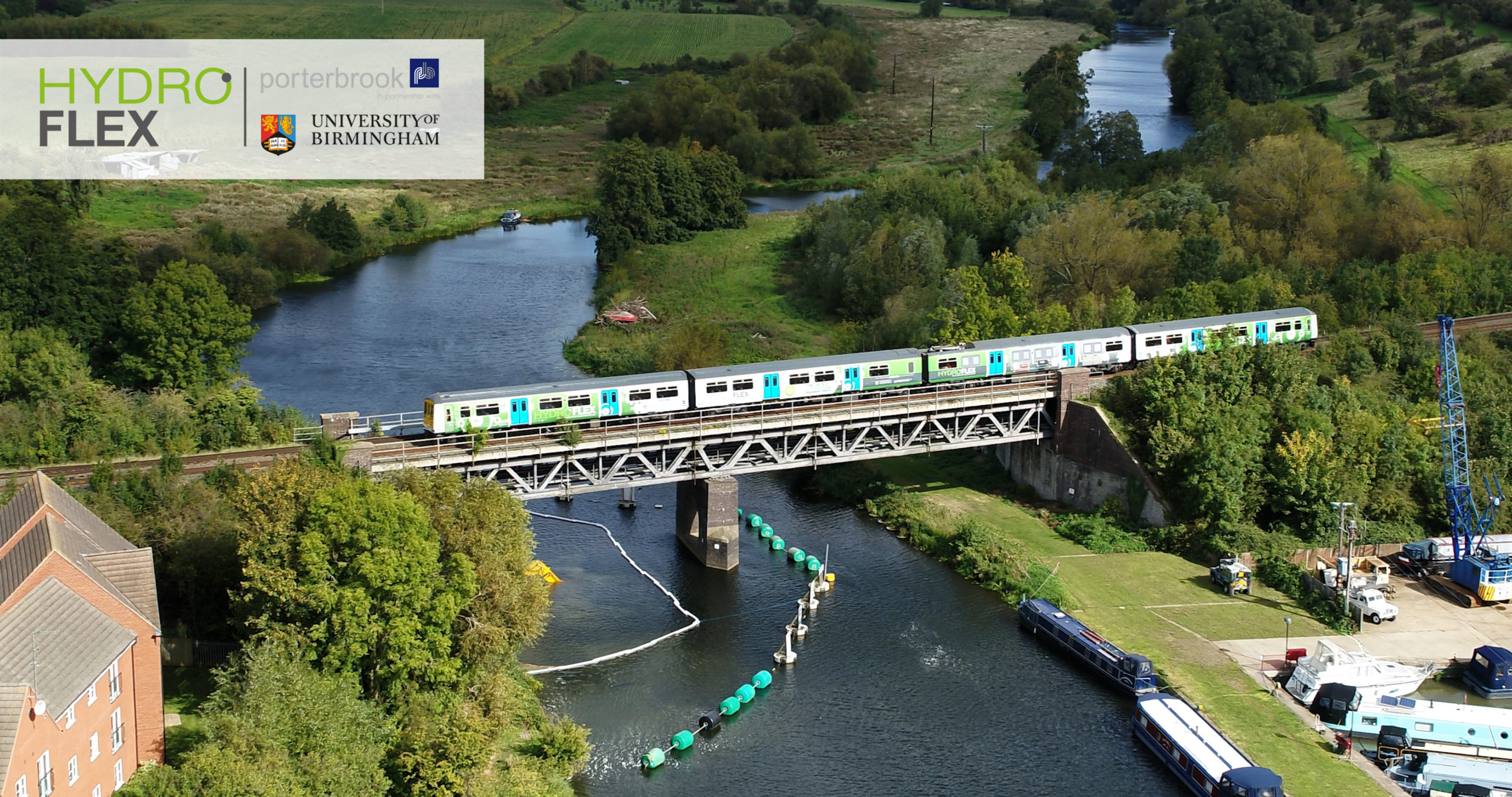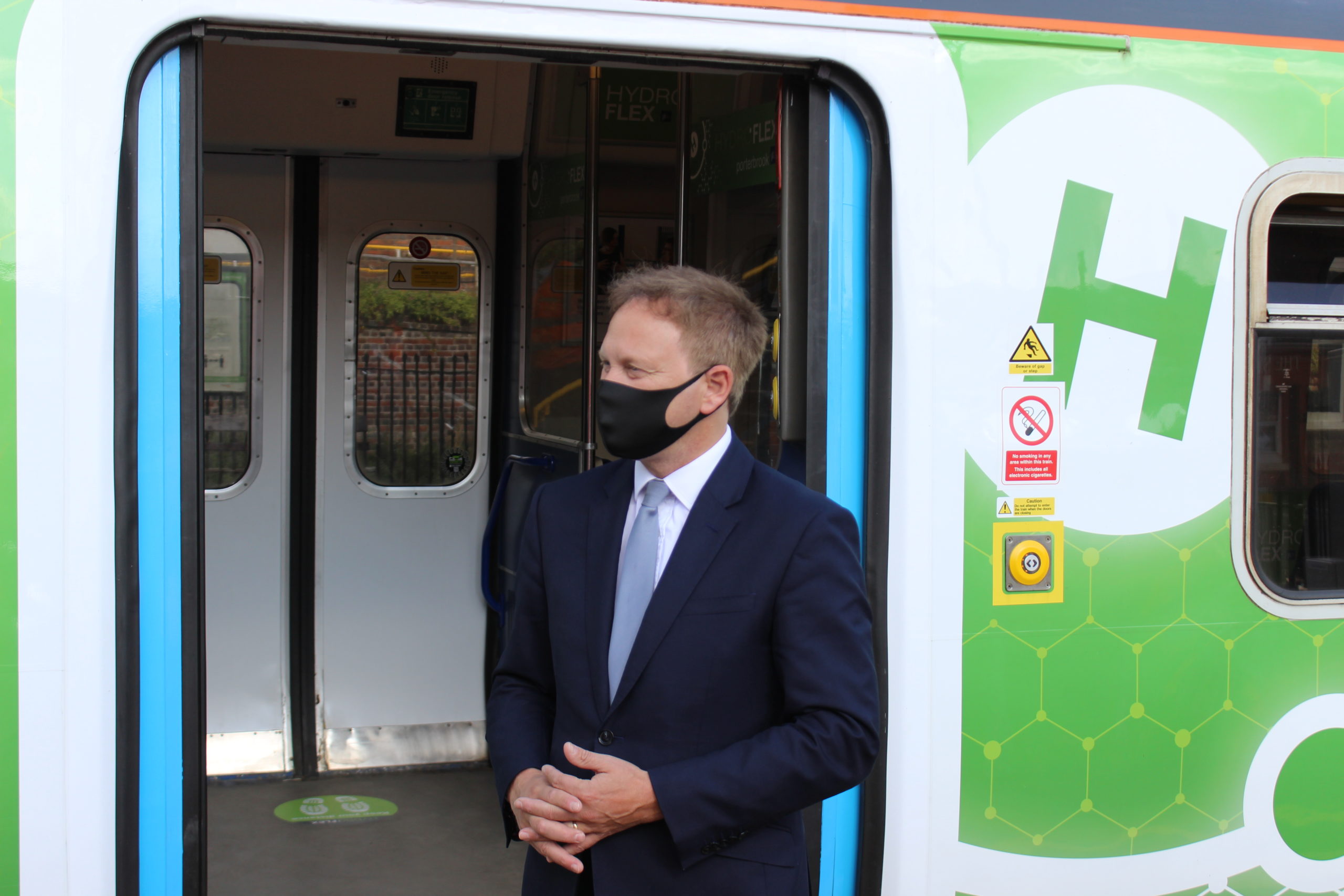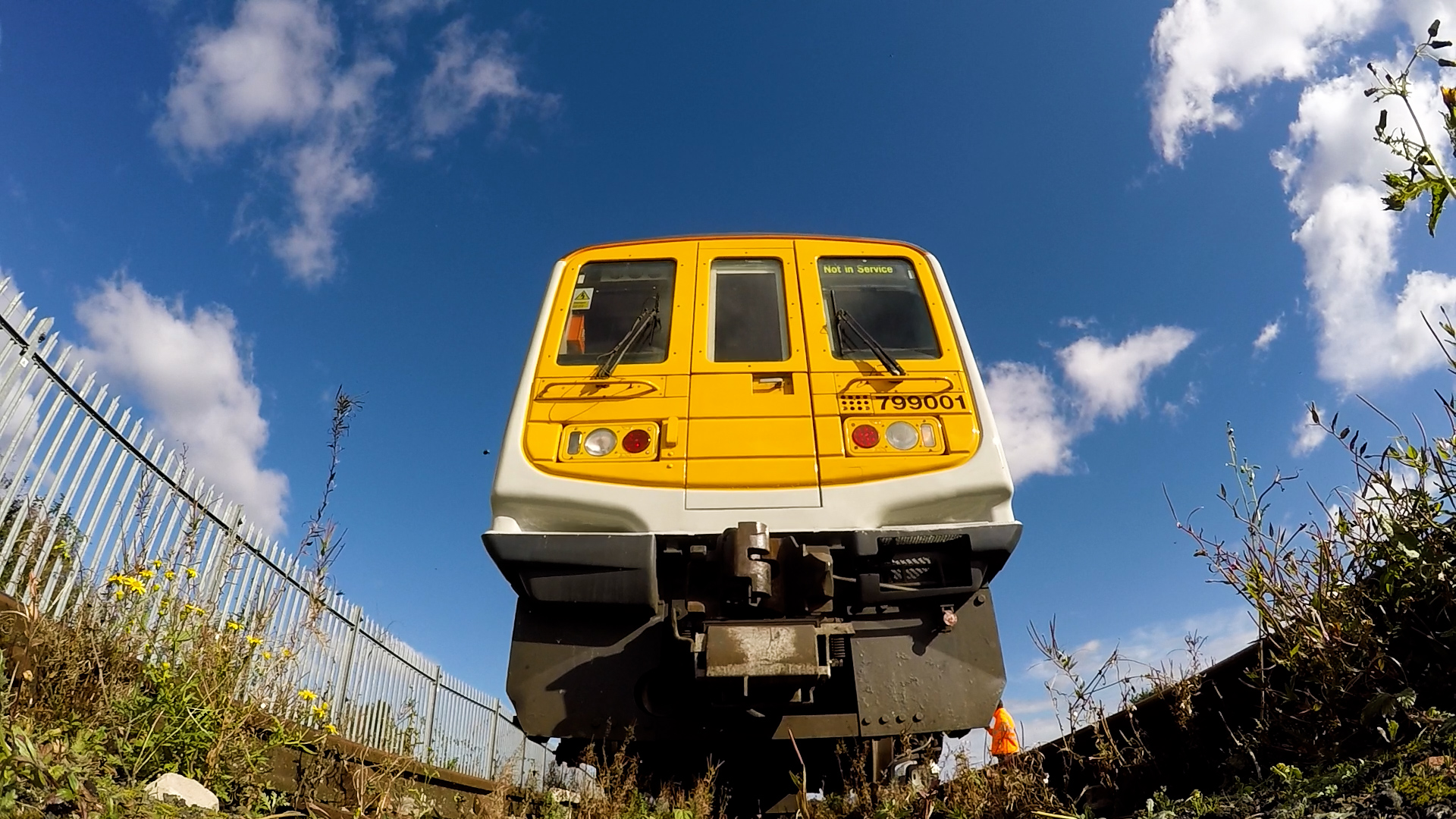Alex Burrows, Director of BCRRE, comments on Hydrogen-based transport, the decarbonisation agenda and the value of collaboration to realise and prove innovation.
Earlier this week we successfully took HydroFLEX, the UK’s first hydrogen train, onto the mainline railway – the first run by a hydrogen-powered train on Network Rail infrastructure. The HydroFLEX project is a superb example of collaboration between the University of Birmingham and our industrial partner, Porterbrook. You can read and see much more about the project on our campaign page here: www.bham.ac.uk/HydroFLEXmainline

To my mind there are two key areas for us at BCRRE that really stand out – the push to deliver rail decarbonisation, and the collaborative partnership with industry to accelerate innovation.
On rail decarbonisation, we have recently seen Network Rail’s Traction Decarbonisation Network Strategy (interim programme business case) (www.networkrail.co.uk/wp-content/uploads/2020/09/Traction-Decarbonisation-Network-Strategy-Interim-Programme-Business-Case.pdf) which establishes hydrogen and battery technology as required to complement ongoing electrification. I am acutely aware that railway electrification needs to be progressed as the optimal method of powering our trains. But I am equally concerned that rail does not continue down the path of ‘wires or bust’ which is where we have been over the last two decades.
To my mind, we need to get dirty diesel engines off the railway as quickly as possible and use the hydrogen fuel cell and battery opportunities as transition technologies. This buys us time to deliver an ongoing programme of rail electrification while supporting the UK’s net zero target. The transport sector is the UK’s largest source of greenhouse gas emissions. Although rail is only a relatively small part of that, we want to maintain our credentials as the cleanest form of mass transport for passengers and freight.
By delivering the UK’s first hydrogen fuel cell train on the mainline railway, we have demonstrated the readiness of the technology for commercial application in the UK. This takes me to my second point – the partnership we have with Porterbrook is an extremely productive demonstration of the potential for university-industry collaboration. BCRRE is a global leader in railway traction power and energy systems. We have been able to collaborate with an enthusiastic industry partner in Porterbrook, to take fuel cell technology through the development process and into demonstration and full rail application. The key point here is around pulling the technology through that development process and getting it out on the railway.

Over the last four years we have seen hydrogen fuel cell technology become a mainstream topic for railway traction. However, there has been minimal progress in the UK due to the nature of the market which has disincentivised a number of commercial actors from committing to the market. The BCRRE-Porterbrook partnership has enabled this technology to be developed and demonstrated on the railway by mitigating risk and securing(?) the funding which has enabled this work to progress. This is an excellent case study for why we are heavily invested as the lead institution in the UK Rail Research and Innovation Network (UKRRIN). The HydroFLEX project represents the ethos and spirit of UKRRIN perfectly, bringing together a university with the right capabilities to support an industrial partner to accelerate innovation towards market introduction.
In addition, we have started the development of the supply chain to support the introduction of hydrogen technology onto the railway. This introduces further BCRRE capabilities into the equation – with the Rail Alliance, we have access to a community of more than 730 companies, the vast majority being SMEs, along with strong international links to other rail clusters as a proud partner within the European Rail Clusters Initiative (ERCI). This has enabled us to reach out to the supply chain and bring in partners and opportunities to our network.
The HydroFLEX project is one that I have been heavily involved in from the very beginning and one that we are all hugely proud of. We have designed, developed and tested a new hybrid hydrogen/battery powertrain and obtained approvals to run it on the mainline railway. In just 2 years. That is the clearest proof yet of the power of this collaboration between 2 partners keen to make things happen.

Read more about HydroFLEX at www.bham.ac.uk/HydroFLEXmainline and follow its progress on @bcrre and linkedin.co.uk/bcrre
